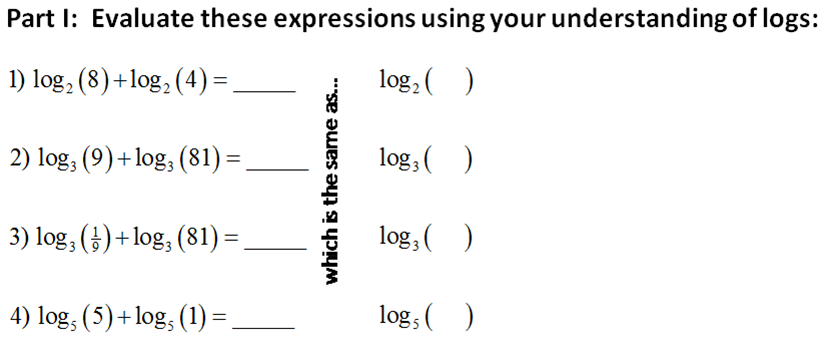Mental Mathematics and Estimation [ME]
Quotes
 (The Alberta 10-12 Mathematics Program of Studies with Achievement Indicators 2008, Alberta Education)
(The Alberta 10-12 Mathematics Program of Studies with Achievement Indicators 2008, Alberta Education)
"Students proficient with mental mathematics 'become liberated from calculator dependence, build confidence in doing mathematics, become more flexible thinkers and are more able to use multiple approaches to problem solving' (Rubenstein, 2001, p.442)." (pg. 7)
"Estimation is used for determining approximate values or quantities, usually by referring to benchmarks or referents, or for determining the reasonableness of calculated values." (pg. 7)
Thoughts on Mental Mathematics and Estimation
No Calculators
One attempt to improve mental mathematics is to not allow students the use of calculators for the Algebra & Number unit in Math 10C. The General Outcome for Algebra & Number is "develop algebraic reasoning and number sense" and eliminating the use of calculators prevents students from using the calculators unnecessarily and forces them to improve their number sense.
Number Line Estimation
A great example of estimation is asking students to place a variety of powers, radicals, fractions, etc. onto a number line. This really shows a student's number sense and understanding of the numerical value of powers and radicals.
Estimate First
In a PD Session I went to with Dan Meyer, he really emphasized getting students to make a guess before attempting to solve a problem. You can ask students to make three guesses: one they know is too low, one they know is too high, and one they think is correct.
One benefit from estimating first is that it helps with student "buy-in". Students often want to know who made the best guess and how close they were to the correct answer.
Make a Conjecture


Ask student to use their knowledge of benchmark values to make a conjecture prior to deriving a rule. An example of this is included in Math 30-1 Logarithms.